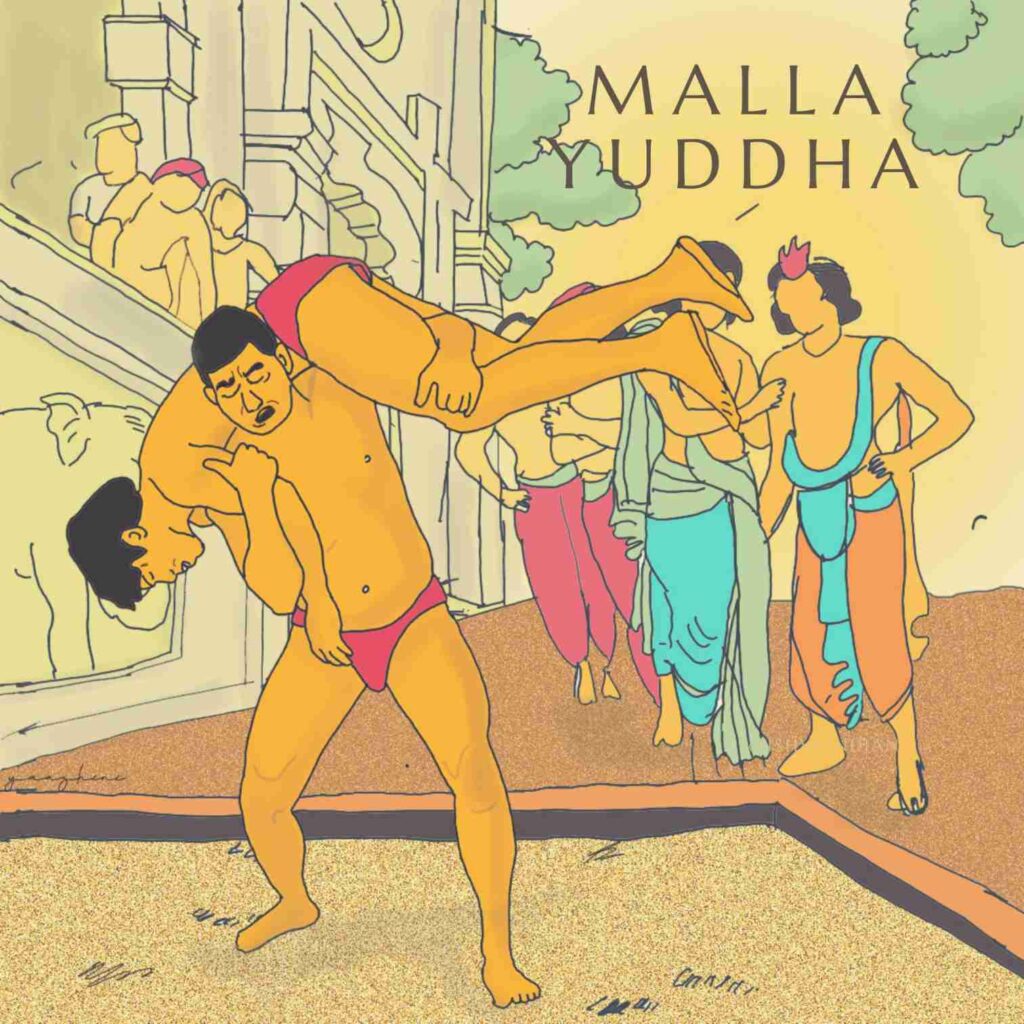Is Malla Yuddha the ancestor of wrestling?

Malla Yuddha is an ancient martial art with a history of presumably 5000 years, making it one of the oldest forms of combat fighting in the world!
History and Warriors
The first literary reference of MallaYuddha can be traced to the Ramayana; a wrestling match fought between King Bali of Kishkintha and King Ravana of Lanka.
In the Māhābhārata, MallaYuddha figures in the legend of Lord Krishna and Balarama in their youth days, fighting in wrestling matches. Another instance seen in Mahabharata is when Bhima wrestled with Jarasindha, shattering rocks in the arena.
King Gautamma was said to be a master of MallaYuddha, archery and sword fighting before he turned into our serene and peace-loving Buddha. King Narasimhavarman of the Pallavas was nicknamed Mahamalla, as he was also a great MallaYuddha warrior.
Weaponry and Style
Malla-yuddha was a fierce combat art, employing grappling, joint-breaking, punching, biting, choking and pressure point striking, sometimes fighting until knocked out or to death.
The violent form had slowly toned down into a milder second form, wherein the wrestlers attempt to lift each other off the ground for three seconds, still exists in south India. Malla yuddha forms are named after legendary Hindu gods/fighters-
Hanumanti concentrates on technical superiority. Jambuvanti uses locks and holds to force the opponent into submission. Jarasandhi concentrates on breaking the limbs and joints while fighting. Bhimaseni focuses on sheer strength.
MallaYuddha is closely related to Southeast Asian wrestling styles such as Naban and is the ancestor of Kushti. Although almost extinct in North India, Malla-Yuddha has survived in the South, and can still be seen in Karnataka and Tamil Nadu as Malyutham, a contact sport in which combatants either tackle each other to the ground or lift off of the ground for few seconds, are still keeping this traditional art alive!
Depictions
In India, Malla yuddha was practiced impartially between subjects and royalty. Mallayuddha was used to settle conflicts and even wars, fought by royal favourites on behalf of royals or sometimes even between kings themselves.
The Manasollasa, a written documention during the reign of the Chalukya king Someswara III (1124–1138) is a great insight into the training, exercises, diet and lifestyle of wrestlers of the kingdom. It even describes the categories of wrestlers based on built, age and strength. The king usually took responsibility of royal favourites and their tutelage.
The Malla Purana is another treatise on wrestling was recorded during the era of Jyesthimalla clan of wrestlers from Gujarat, dating back to the 13th century, once again describing wrestlers, skills, training and specialized diet of the wrestlers!
MallaYuddha is one of the oldest martial arts in the world. India is home to many such ancient forms of combat, still practiced today. Read the entire series here.
